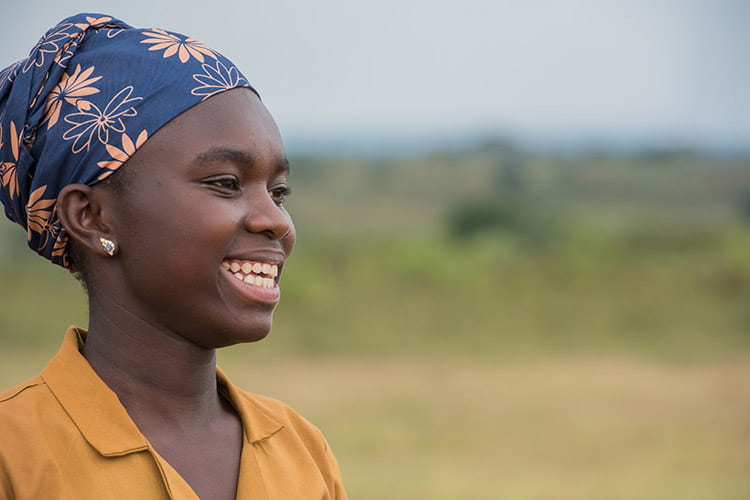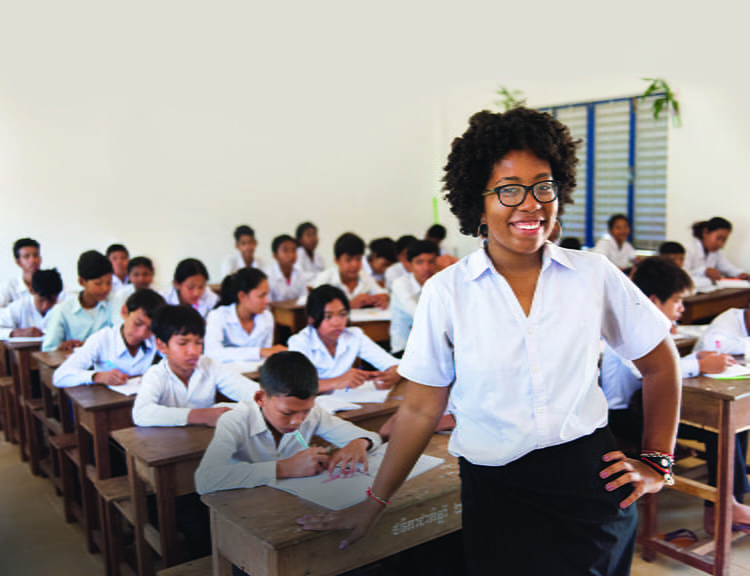Mission
The goal of the Peace Corps is to promote world peace by:
- Helping people of interested countries meet their need for trained men & women
- Promoting a better understanding of Americans on the part of the peoples serve
- Promoting a better understanding of other peoples on the part of Americans

Qualifications
- U.S. citizen
- 18 years or older (applicants under 21 rarely have the work background or maturity to qualify). There is no upper age limit
- Meet legal and medical requirements
- Have a skill, degree or work experience requested by Peace Corps’ host countries
- Be willing to live and work overseas for 27 months
Where Volunteers Go
The Peace Corps works in countries from Asia to Central America, and from Europe to Africa. In each of these countries, Volunteers work with governments, schools, and entrepreneurs to address changing and complex needs in education, health and HIV/AIDS, business, information technology, agriculture, and the environment. Please visit our Peace Corps openings page to explore where you would like to go and what you would like to do

Volunteer Support
- Living Allowance: Monthly stipend that covers food, housing and personal expenses such as clothing and transportation
- Medical and Dental Coverage: Full medical and dental care during service
- Travel Expenses: Paid travel to/from the country of service
- Leave: 48 days vacation leave (in addition to holidays) during the 2-year service
Peace Corps Training
Peace Corps provides 6-14 weeks of training in:
- Technical Skills: specific to the job assignment in your host country
- Cross-Cultural Knowledge: customs, culture, religious beliefs, history, laws and other information integral to being a sensitive community member
- Language: extensive training in the language of the host country and community
- Medical: information that will help keep you healthy and safe in your host country

Benefits
Upon completion of Peace Corps service, you receive:
- Readjustment Allowance of more than $10,000 (pre-tax) toward transition to life back home
- Graduate Education Opportunities: More than 70 graduate schools offer special programs specifically for returned Peace Corps Volunteers. These range from preferential treatment for financial aid and admission to graduate teaching assistantships. There are also Peace Corps Fellowships available which subsidize the cost of graduate school. Many colleges and universities have Peace Corps representatives on campus working part-time
- Student Loan Deferral and/or Forgiveness: You may be eligible for deferment for federal loans such as Stafford, Perkins, direct and consolidation loans. Some commercial loans may also be deferred. You can cancel 15-30% of your Perkins loan debt. Rules that authorize loan deferment are complicated and subject to change. Review the Peace Corp information about loan management.
- Non-Competitive Eligibility for Federal Jobs: You may be hired more quickly and easily, without having to compete with other applicants who lack this status.
- Career Skills: Volunteers gain language skills, hands-on field experience, management and cultural skills that are highly marketable to employers